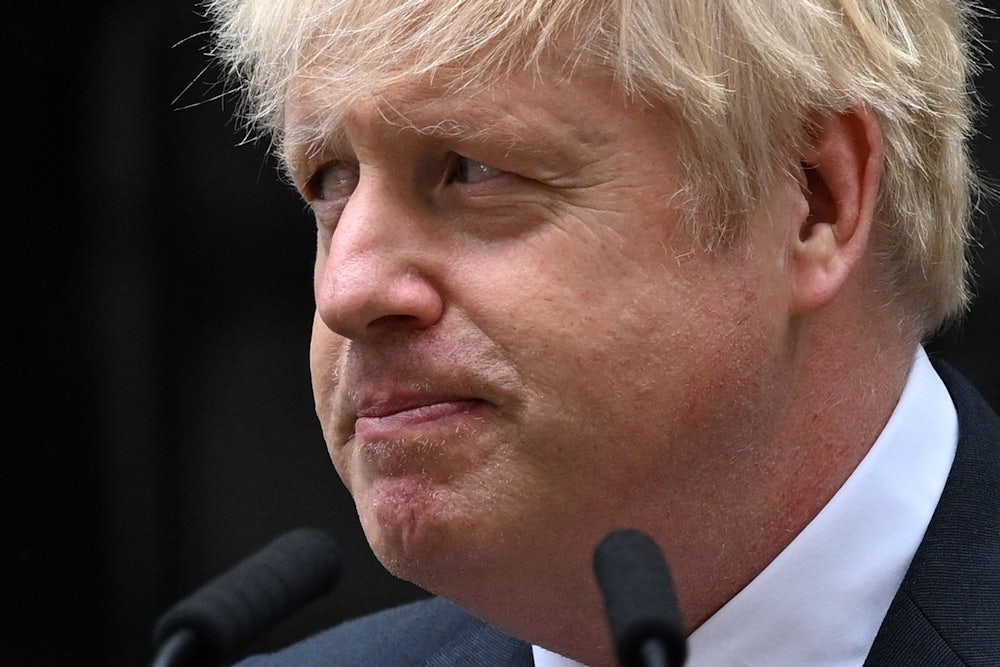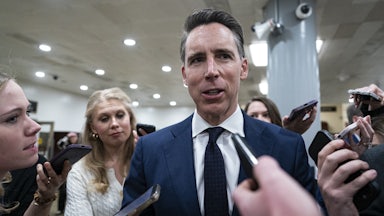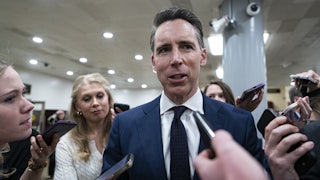Never had English politics seen a day like it for high drama. Thursday October 17, 1963 “began as an ordinary working day,” Iain Macleod recorded shortly afterward. He was leader of the House of Commons and chairman of the Conservative Party, a prominent figure in the government of Harold Macmillan, and one of a handful of obvious contenders, it seemed, to succeed the prime minister, who would shortly turn 70, was troubled by ill health, and had been demoralized by the Profumo scandal, when a minister had to resign because of an extramarital liaison with a woman who was also sleeping with a Soviet spy. But that day ended, Macleod wrote, “with my firm decision that I could not serve in the administration that I knew Lord Home was to be invited to form.” Just how Macmillan engineered the astonishing succession of the fourteenth Earl of Home—who became Sir Alec Douglas-Home when he renounced his title to become prime minister—rather than R.A. Butler, who enjoyed much more public support and was regarded by colleagues like Macleod as the obvious choice, was described by Macleod in a famous philippic in the Spectator three months later.
But today we need to say that English politics had never seen a day like that for high drama—until Wednesday July 6, 2022. It began with Boris Johnson still, as he believed, secure at 10 Downing Street even after two of his most senior ministers had resigned the evening before, and it ended with an almost universal recognition that the game was up. “Almost,” since a delusional Johnson apparently went to bed believing he could bluff it out and get away with it yet again, as he has bluffed out and gotten away with scandal, outrage, and betrayal all his life. Only on waking early on Thursday did he accept the inevitable and begin drafting his odious, graceless, and self-serving resignation speech, boasting about the “incredible mandate” he had won in the December 2019 election, bleating that it was “eccentric to change governments when we’re delivering so much,” and blaming his fall on the “herd” instinct of his former followers who had abandoned him.
By now you will likely have read something about the reasons for that abandonment. One member of Parliament departed when he was imprisoned for sexual assault on a minor, another when he was seen looking at pornography on his iPhone while in the chamber of the House of Commons. (Really, where do the Tories find them?) The Conservatives devastatingly lost the two ensuing by-elections, making clear that Johnson’s supposed electoral magic worked no more. Then another M.P., one of the government whips, drunkenly groped two other men at the highly respectable Carlton Club (where do the Tories…), and Johnson’s response displayed all his faults—the bravado and bluster, the shiftiness and mendacity.
But this was only the culmination of a longer story: Johnson’s fall was overdetermined. When Margaret Thatcher was deposed in 1990, some national leaders like President George Bush the elder were dismayed, some like Helmut Kohl were relieved, but all were astonished at the destruction of “a woman who through character and conviction changed the country,” as Perry Anderson of The New Left Review has improbably but correctly described her—a woman who had dominated the 1980s and who had won three elections. Her removal could only be explained by the base survival instincts of the Tories, who thought that she had at last become a liability rather than an advantage.
That happened much more quickly with Johnson, but there was this further difference. Thatcher had difficult dealings with her senior colleagues to begin with after she seized the party leadership in 1975 and even after she won her first election in 1979. Nor did the British electorate ever really warm to her as a person, as opposed to admire her as a leader. But everyone recognized that character and conviction. And those are the very qualities Johnson has always entirely lacked.
He is something quite unusual among politicians, or indeed among everyone: a man who has never seriously believed in anything all his life apart from self-advancement and self-gratification. In 2016, Johnson betrayed David Cameron, the prime minister, by coming out in support of Leave in the referendum on British membership of the European Union and then playing a prominent and maybe decisive part in the campaign. And yet the right-wing, Europhobic, but intelligent columnist Dominic Lawson has said what everyone knows: “Johnson was never in favor of Brexit, until he found it necessary to further his ambition to become Conservative leader.”
What that meant in turn was that Johnson’s relationship with the Tories, and certainly with the Europhobic M.P.s, was always transactional. From the beginning they could see for themselves what he was like. They were prepared to support him as long as he was useful in their desire to “Take back control,” the Leave slogan in 2016, and “Get Brexit done,” the slogan in 2019. With both referendum and election won, Johnson had served his purpose and was disposable. A succession of people who worked for him had already resigned in despair. One of them was Lord Geidt, the name of whose position, “ethics advisor to Boris Johnson,” put one in mind of what Oliver St. John Gogarty called the Royal Irish Academy: a treble contradiction in terms.
Now Johnson leaves behind a poisoned political landscape. Whatever one’s view of Brexit, the way it “got done” showed—to the delight of Johnson’s claque of cheerleaders like Charles Moore of the Daily Telegraph—a contempt for parliamentary government and the rule of law. Johnson purged the Conservative Party of many of its best people and appointed a government of mediocrities reminiscent of the “Who? Who?” Cabinet of 1852, so called because as the list of unfamiliar names was read out to the aged, deaf Duke of Wellington, he kept saying, “Who?”
We are now faced with a gruesome leadership contest between some of the most unimpressive and unappealing men and women in public life for a long time. Whoever wins will have a thankless task. Johnson has taken his party’s polling figures down with the collapse of his own approval ratings. The Labour opposition, under the far from scintillating leadership of Sir Keir Starmer, is not quite on a high, but as of the moment the next election—whenever it comes—is likely to fulfill an old saw of British politics: that oppositions don’t win elections, governments lose them.
Much worse than all that has been Johnson’s legacy, his assault on democratic norms and constitutional propriety. Some of this is in consequence of Johnson’s own incurable temperament and ungovernable appetites. When some use the tired phrase that you shouldn’t kick a man when he’s down, the aforementioned Iain Macleod said, “That has always seemed to me the best possible time,” and maybe Rupert Murdoch agrees. He doesn’t like backing losers, and his Sunday Times led the front page two days after Johnson quit with a story—startling even when we had thought ourselves inured to his behavior—about the way our soon to be former prime minister had tried to find official jobs for a succession of women whose sexual favors he had enjoyed.
Worst of all has been the shameful raft of legislation passed this spring. Ferdinand Mount—historian, essayist, novelist, and sometime aide to Mrs. Thatcher—has compared Johnson’s Five Acts with the infamous Six Acts passed by the reactionary Sidmouth government in the 1810s. One of these new laws, allowing the deportation of asylum-seekers to Rwanda, could not have been dreamed up by any satirist; another, less cruel but more ominous, is a piece of voter suppression worthy of the U.S. Republicans. When he became prime minister, Johnson had been working on a doubtless rubbishy book on Shakespeare, to which he may well return, while the rest of us brood upon Mark Antony’s words: “The evil that men do lives after them.”
As Johnson gets back to making money and disfiguring national life in some other way, he deserves absolutely no sympathy: He lived by the base instincts of his party, and he perished by them. As his ministers resigned in a cascade last Wednesday and backbench M.P.s said he should go, I recalled an exchange after the fall of Thatcher between Paul Johnson, the radical-turned-rightist journalist, and a Tory M.P., who said, “I’m afraid this means we’ve become a party of cowards.” “And shits.” “Oh we’ve always been that!”










